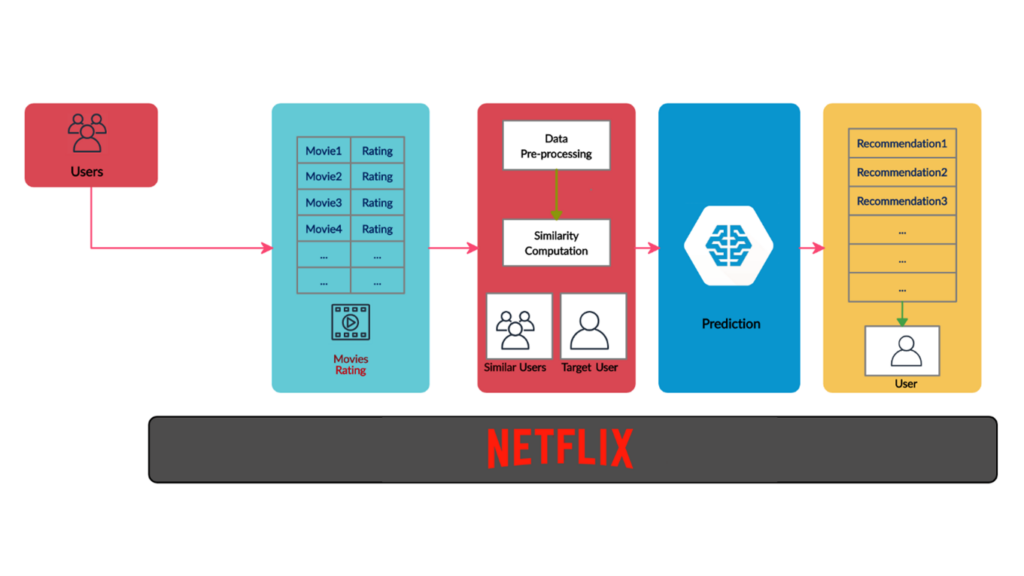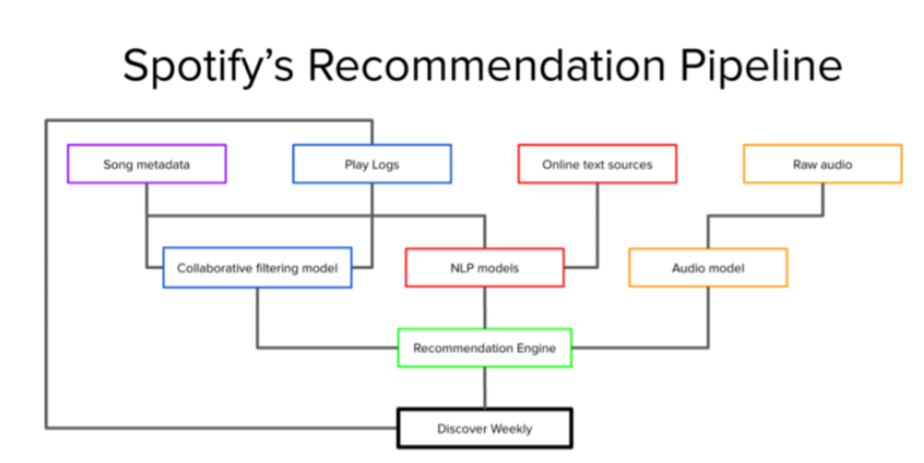24 Oct 23
How Streaming Giants Use Your Data to Personalise Your Experience
In the digital age, streaming platforms like Netflix and Spotify have transformed the way we consume content. A personalised user experience is one of the key factors behind their success, and it is achieved through data-driven personalisation.
These companies gather a vast array of data from their users and use advanced machine learning algorithms to recommend content, curate playlists, and enhance the overall user journey.
The Type of Data Collected from Customers
Before delving into the mechanics of personalised content recommendations, it’s crucial to understand the type of data these streaming giants collect. Both Netflix and Spotify gather a wealth of information, including:
- User Behaviour Data: This includes the content users watch or listen to, how long they engage with it, and at what times.
- Demographic Information: Data such as age, gender, location, and language preferences help in understanding user demographics.
- Device and Location Data: Information about the device used for streaming and the user’s location can be crucial in providing personalised recommendations.
- Social Interactions: Spotify, for instance, may use data on who you follow, what you share, and who you collaborate with on playlists.
- Search and Browsing History: The history of user searches and browsing provides insights into their preferences.
Machine Algorithms in Content-Based Recommendation Systems
Content-based recommendation systems are the backbone of personalised content delivery. These systems work by analysing the data collected from users to suggest content that aligns with their preferences. Key components include:
- Feature Extraction: Machine algorithms extract features from the content itself, like genre, actors, or musical attributes.
- User Profiling: Profiling users involves creating a detailed understanding of their preferences based on historical data.
- Content Matching: The system matches user profiles with content features to make recommendations.
How Netflix’s Recommendation Engine Works
Netflix’s recommendation engine is an example of a sophisticated content recommendation system. It uses a combination of collaborative filtering and content-based methods to make personalised recommendations. It considers what you’ve watched, your interactions with content, and the behaviour of users with similar tastes. This ensures that recommendations are highly personalised, making it more likely for users to discover content they love.

Spotify’s Personalised Playlists
Spotify is renowned for its personalised playlists, and it uses data extensively to create them. The “Discover Weekly” and “Release Radar” playlists, for instance, are generated using a combination of collaborative filtering, natural language processing, and audio analysis. Spotify analyses your listening history, playlists, and even the playlists you follow to curate music that aligns with your taste.

Privacy Concerns
The use of data for personalisation also raises privacy concerns. Streaming platforms collect a significant amount of personal information from users, and there is potential for misuse or data breaches. To address these concerns, companies must:
- Transparent Data Usage: Platforms should clearly communicate how user data is used for personalisation.
- Data Security: Robust security measures must be in place to safeguard user data.
- Opt-In Features: Users should have the option to opt in or out of data-driven personalisation.
- Data Retention Policies: Companies should establish data retention policies that align with privacy regulations.
In conclusion, streaming giants like Netflix and Spotify have mastered the art of data-driven personalisation, enhanced user experiences, and keeping audiences engaged. While these systems provide numerous benefits, they also bring privacy concerns to the forefront. Striking a balance between personalisation and user privacy remains a significant challenge as these platforms continue to shape the future of entertainment consumption. As consumers, understanding how our data is used and advocating for responsible data practises is crucial in this data-driven era.
Interested in joining our diverse team? Find out more about the Rockborne graduate programme here.
Related posts
Life at Rockborne20 Jun 25
Federated Learning: The Future of Collaborative AI in Action
Federated Learning: The Future of Collaborative AI in Action The way we build, deploy, and govern AI is evolving, and so are the expectations placed on organisations to do this...
09 Sep 24
Tips to Succeed in Data Without a STEM Degree
By Farah Hussain I graduated in Politics with French, ventured into retail management, dabbled in entrepreneurship, a mini course in SQL and now… I am a Data Consultant at Rockborne....
15 Apr 24
Game Development at Rockborne: How is Python Used?
Just how is Python used in game development? In this blog post, we see the Rockborne consultants put their theory into practice. As the final project in their Python Basics...

